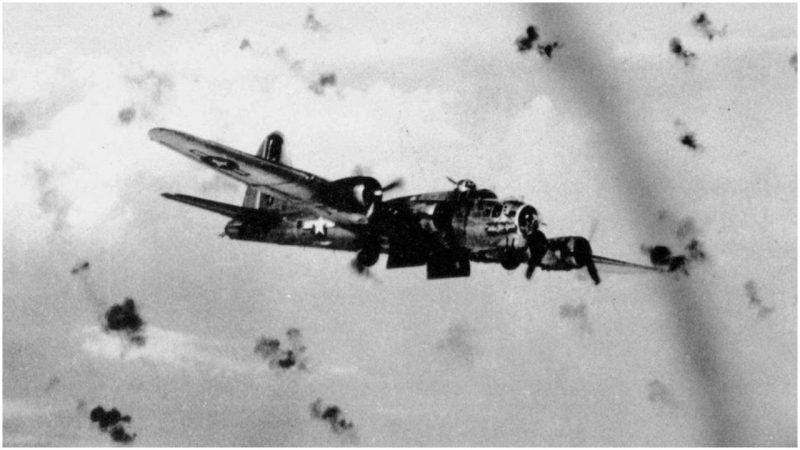War is a driver of many innovations, particularly in the field of technology, which can often evolve in leaps and bounds. However, it also prompts development in other areas that are not quite so obvious, such as language.
Few people stop to think about the origin of the expressions and phrases we use in everyday conversation, but many of them came from major cultural, social, sporting and political events, including warfare.
A prime example of this is the commonly used phrase “taking flak,” which, as described below, came from the Second World War.
Others, like “the whole nine yards” have more of a murky origin. Previously, it was suspected that this phrase came from WW2. While this is a popular theory, it’s actually inaccurate.
Nonetheless, it is interesting to explore the reasons why many people would think that it came from the war.

We all know what the phrase “give ’em the whole nine yards” means, of course: to give something (a project, a sports team you’re playing against, etc.) everything you’ve got.
I bet most people reading this probably never thought much about the origin of the phrase, or if they did, that they assumed it came from football or another ball sport played on a field.
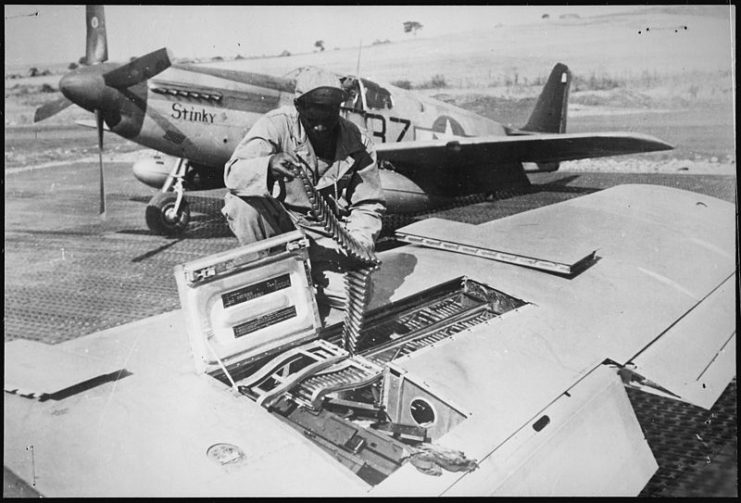
A popular theory, however, states that the phrase actually originated in WW2. In WW2, many American bomber planes were fitted with belt-fed machine guns. The ammunition belts for these guns were twenty-seven feet long – or, put another way, nine yards.
If the gunner managed to get through the entire nine-yard-long belt of ammo on a trip, he must have given the enemy hell. He had, quite literally, given them the entire nine yards of ammunition.
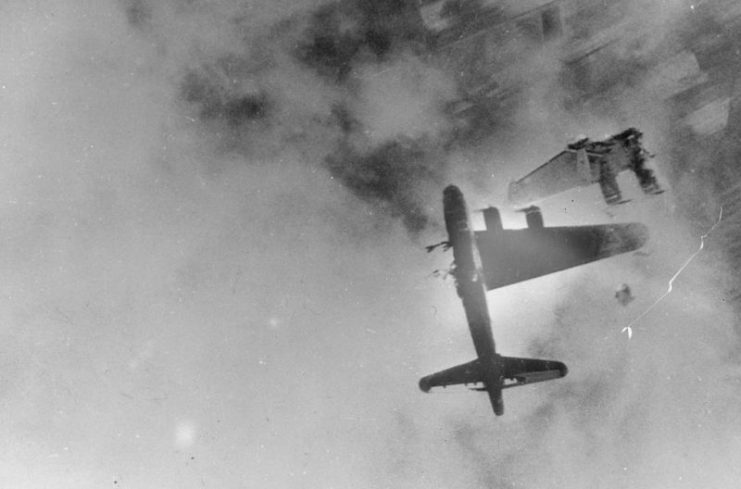
Recent research suggests, however, that the phrase likely comes from the twisting of an earlier expression “the whole six yards of it,” the origin of which remains unknown. Even so, the ammo belt story spices up the origin theory a little, right?
Another phrase we often use in modern-day English is “taking flak.” Any English speaker knows that this means to be on the receiving end of some pretty harsh criticism, but few people realize that this is an expression that can trace its origins back to the Second World War.

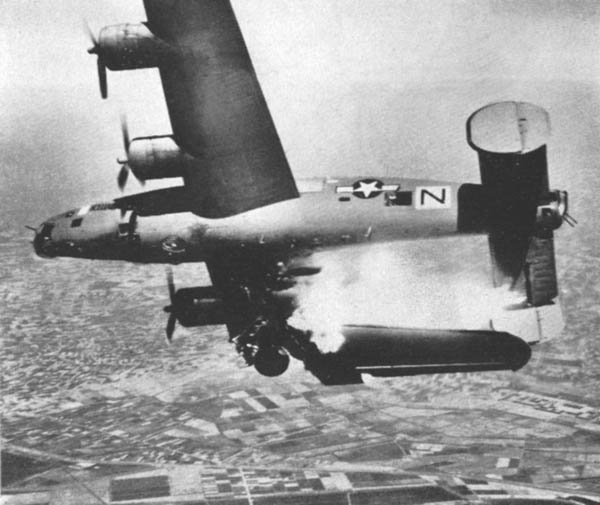
War history aficionados know, of course, that the word “flak” is slang for anti-aircraft gunfire. But perhaps they don’t know that the word itself comes from a German word: fliegerabwehrkanone, (an anti-aircraft gun) which, literally translated, means “aircraft defense cannon.”
With a word as long as this, it’s easy to see why it was shortened to “flak”!
And, of course, when a pilot’s plane was on the receiving end of anti-aircraft fire, he would no doubt have felt as if he was in a situation of immense pressure and stress. With people quite literally trying to shoot him down out of the sky, he would be “taking flak.”
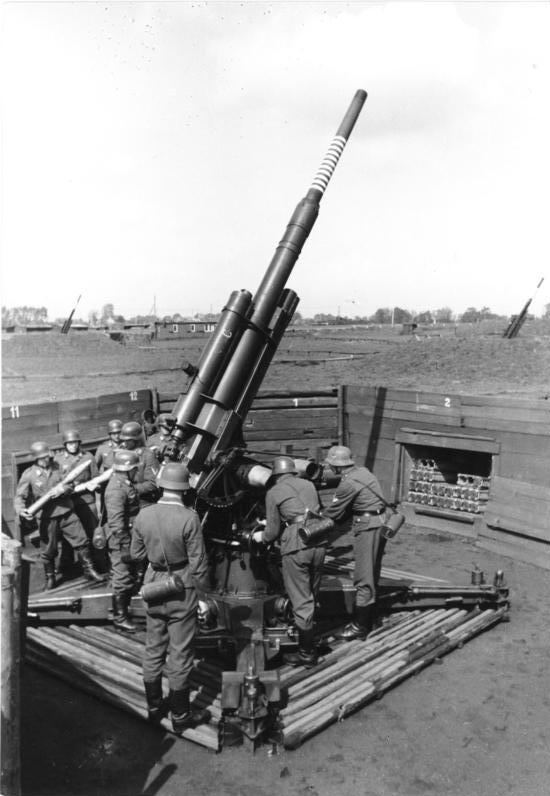
“Geronimo!” is a word many people jokingly use when jumping off or out of something (especially an airplane) – and it’s an expression that also happens to have its origins in WW2.
While the name Geronimo itself doesn’t come from WW2, using the word in the context of jumping off or out of something does.
Geronimo was the name of a famous Apache warrior who fought fearlessly and ferociously against both Mexican and American soldiers as they expanded their territories into Apache lands.

The story behind how his name came to be used by the first American airborne infantry to jump out of airplanes is an amusing one.
The first ever American attempt at a group jump out of a plane happened in 1940 over Fort Benning, Georgia. The night before the jump, one of the privates was being taunted about being afraid to jump. His friends said he would get so scared that he would forget his own name.
In response, the defiant private said that he would yell the name “Geronimo” as loud as he could when he jumped to prove them wrong. The next day he jumped. Just as he had said he would, he yelled out “Geronimo!” The rest, of course, is history.
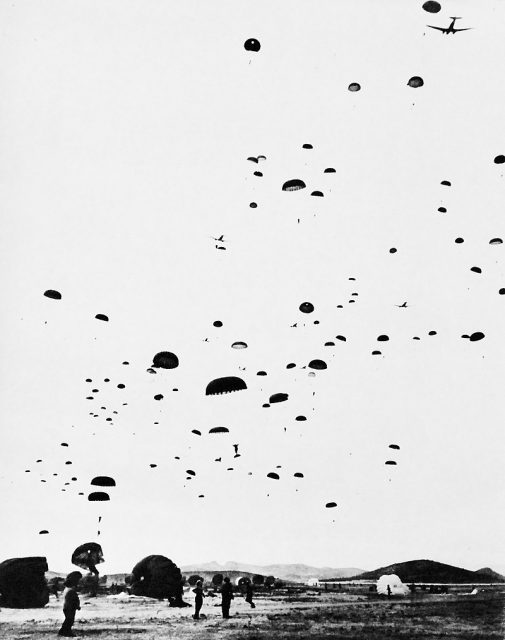
Another famous WW2 word that eventually became not just a widely-used word but also a brand name and registered trademark is the word “jeep.”
A widespread theory holds that the word “jeep” came from the abbreviation used for the all-purpose vehicles used by the US Army in WW2, which were known as GPs.
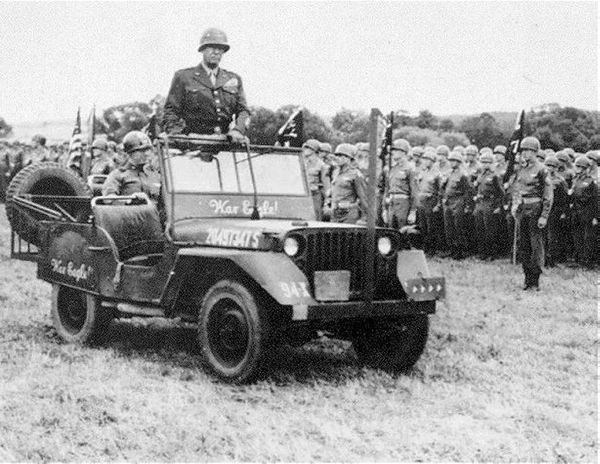
Simply put, saying those two letters together makes a sound like “jeep.” However, another theory states that the word has an earlier origin: the famous cartoon Popeye featured a character named Eugene the Jeep – a weird dog with the magical ability to teleport.
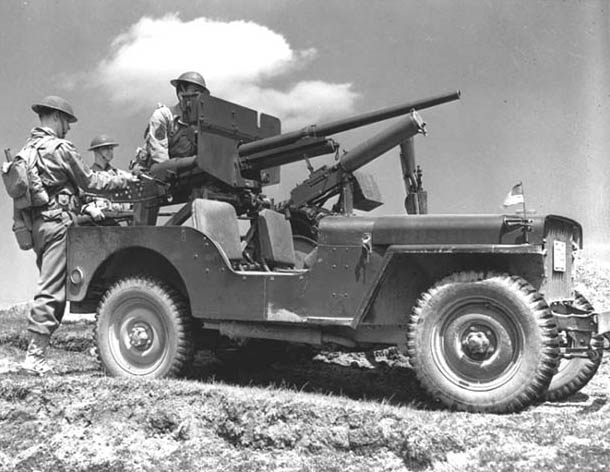
Some people believe that American soldiers who were fans of the cartoon decided that the name “jeep” would be a suitable nickname for the army’s new all-purpose vehicle.
Whatever the reason was behind naming the vehicles “jeeps,” by the end of the war every soldier knew what a jeep was. Soon after the war, the word entered the civilian lexicon. Now you’d be hard pressed to find anyone who doesn’t know what a jeep is.
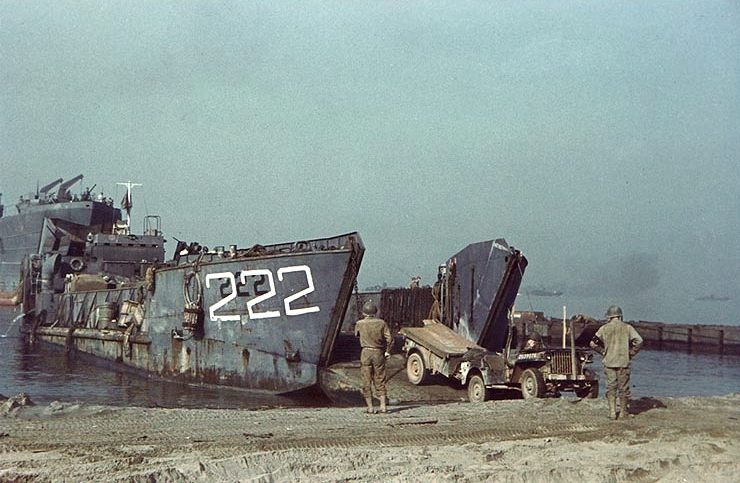
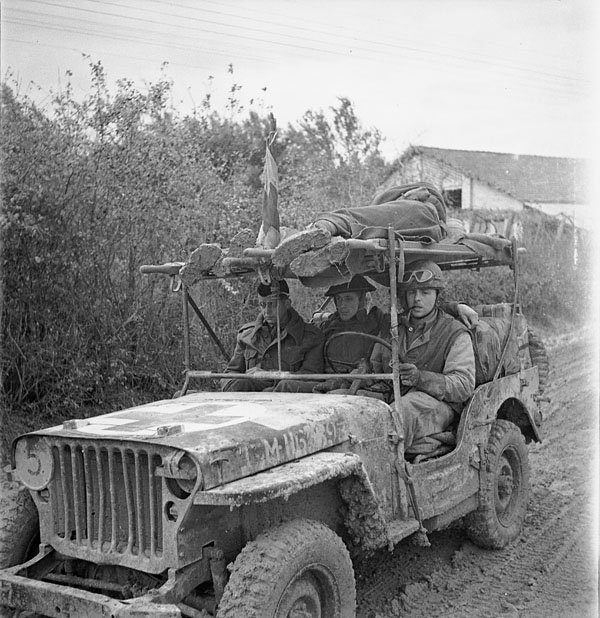
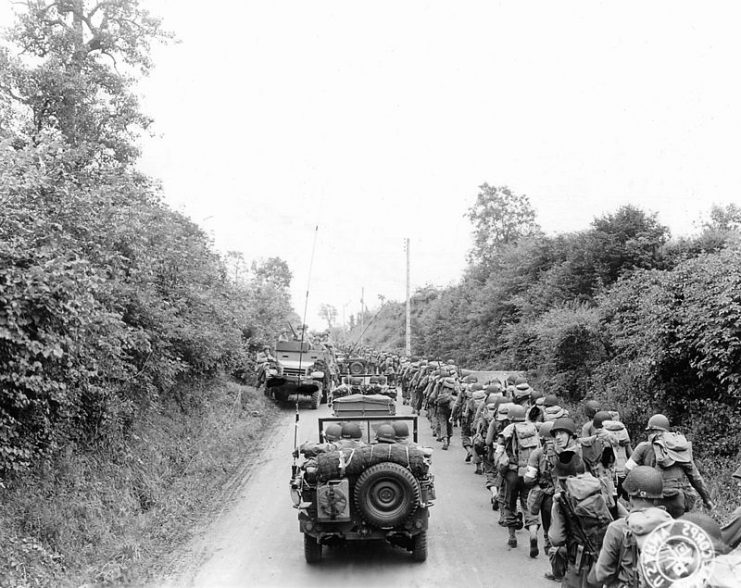
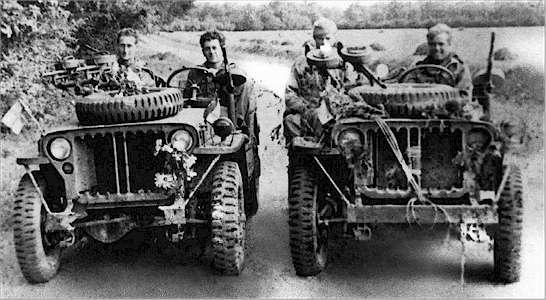
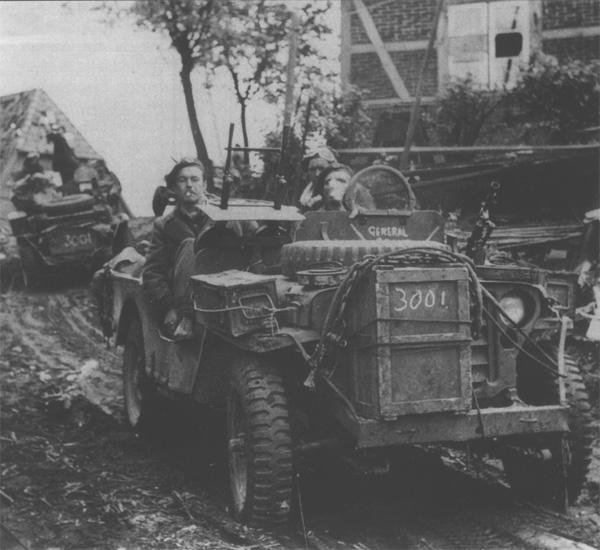
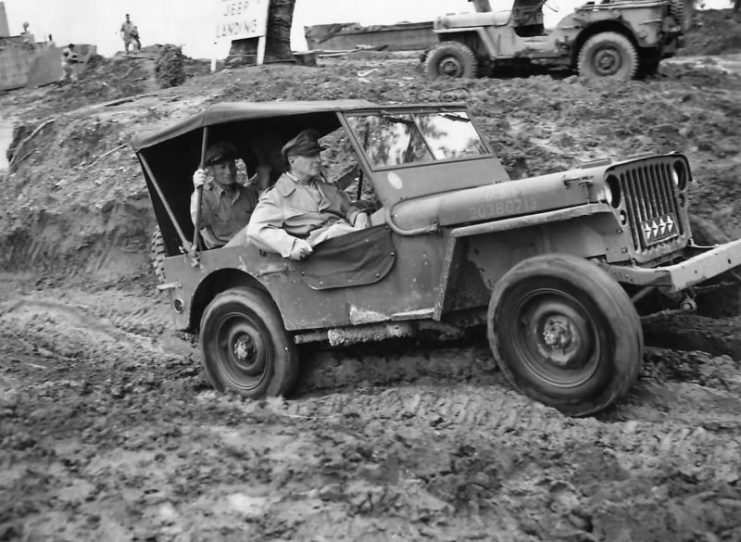
Interestingly enough, it’s not only English that has adopted phrases originally used in the Second World War. In the Netherlands, during WW2 German soldiers often used to commandeer Dutch citizens’ bicycles, especially as the Allied Forces were advancing in the later stages of the war.
Even today, if a bicycle is stolen in the Netherlands, some people will make remarks like “it’s already in Germany” or “you can thank our neighbors in the east.”
So there you have it – a number of commonly-used words and phrases that happen to have their origin in the slang used by soldiers in the Second World War. So next time you use the phrases “Geronimo,” “jeep,” or “taking flak,” remember where those expressions came from.
